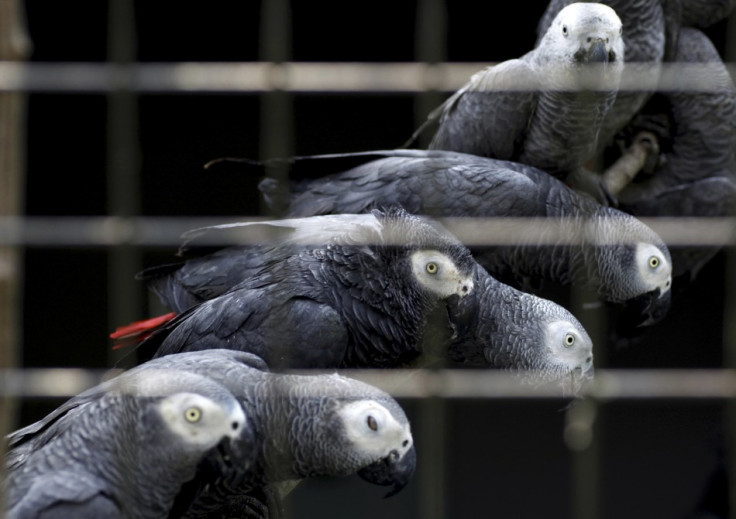Endangered parrots found stuffed by smugglers inside plastic water bottles
There are more than 130 threatened bird species found inhabiting the vast jungles of Indonesia, which is more than any other country except for Brazil.
Over 70 parrots stuffed into plastic water bottles have been found Thursday morning on a ship docked in Indonesia's Papua region. Authorities in Fakfak discovered 64 live black-capped lories and 10 dead birds in plastic bottles inside a large box.
"The ship's crew told us that they suspected there were animals inside the box as they heard strange noises," said local Police spokesman Dodik Junaidi adding that the destination of the birds were still unclear.
No arrests have been made so far.
Black-capped lories are a type of parrot listed as a protected species in Indonesia, which is highly sought-after illegally for the pet trade. These are native to New Guinea and nearby smaller islands in the southwest Pacific Ocean.
Indonesia is home to the highest number of exotic and endangered bird species in Asia, bringing a rampant illegal trade in birds. There are more than 130 threatened bird species found inhabiting the vast jungles of Indonesia which is more than any other country except for Brazil.
The large scale illegal trading of birds usually brings them to giant avian markets in Indonesia's major cities or sometimes are smuggled abroad.
Elizabeth John from the wildlife trade watchdog Traffic told the BBC:
"Indonesia perhaps leads the charge in bird smuggling interceptions in the region, but what is needed is more arrests and a true crackdown of the players from source to market."
Exotic birds are usually trafficked by gangs and are sold as status symbol pets due to their high market price value. Some bird species such as the Australian palm cockatoo can fetch up to as much as £22,530 in the black market.
This is not the first case of birds being discovered stuffed inside plastic bottles in Indonesia. In 2015, police arrested a man who was attempting to smuggle 21 endangered yellow-crested cockatoos he concealed in bottles.
In 2017, 125 exotic birds stuffed inside drain pipes were seized by Indonesian authorities. Police identified 84 eclectus parrots and 41 endangered white cockatoos that were stuffed into drain pipes and were sealed by wire. This came after the country had been trying to rein in rampant wildlife trafficking which led to several arrests.
Any person found guilty of illegal wildlife trade faces prison time of up to five years and fines of 100million Rupiah ( £5,600 ).

© Copyright IBTimes 2025. All rights reserved.



















